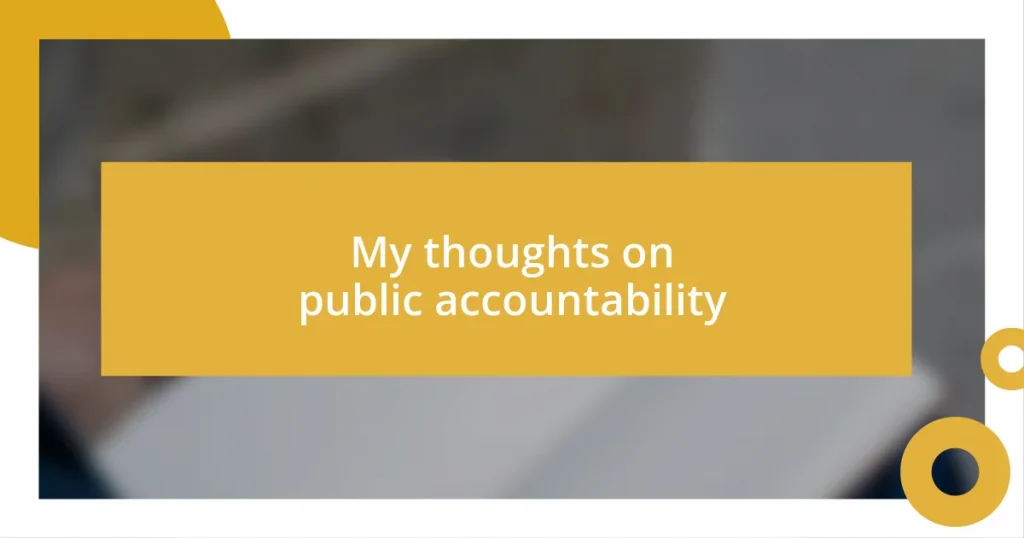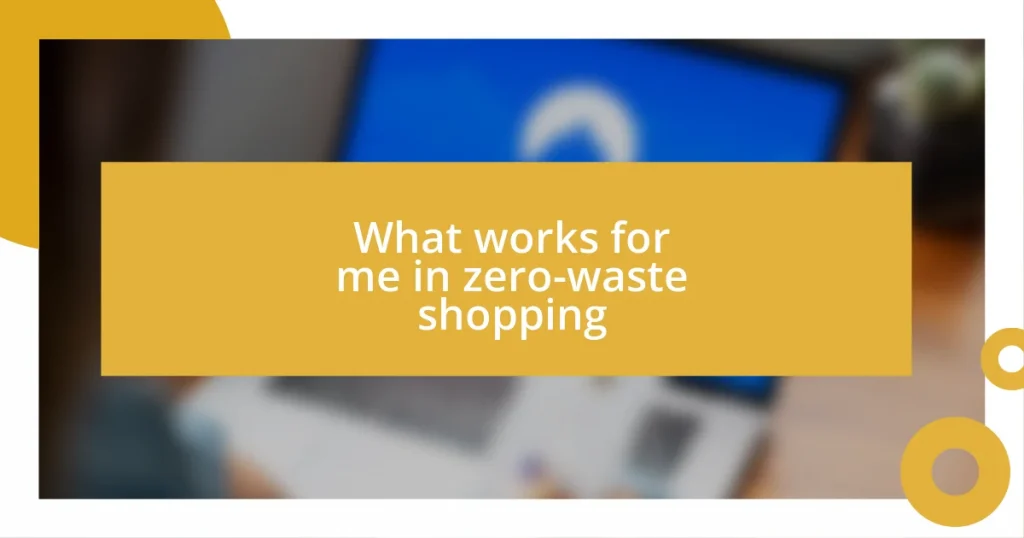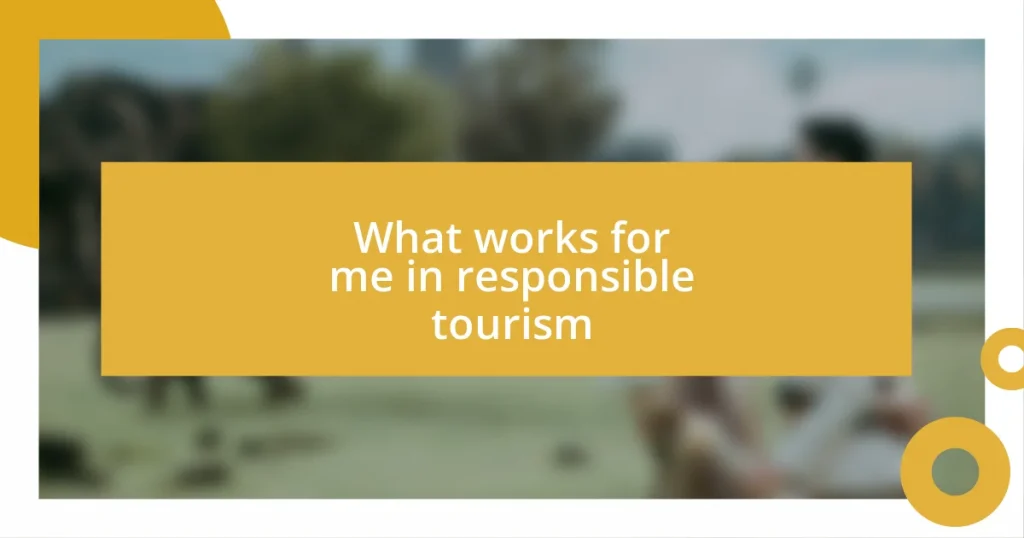Key takeaways:
- Public accountability fosters trust and engagement between leaders and citizens, encouraging transparency and responsible governance.
- Mechanisms such as citizen-led monitoring, technology for transparency, and civic education are essential for enhancing accountability in public governance.
- Case studies like the Flint Water Crisis and various responses to COVID-19 illustrate the significant impact of leaders’ actions on public trust and community well-being.
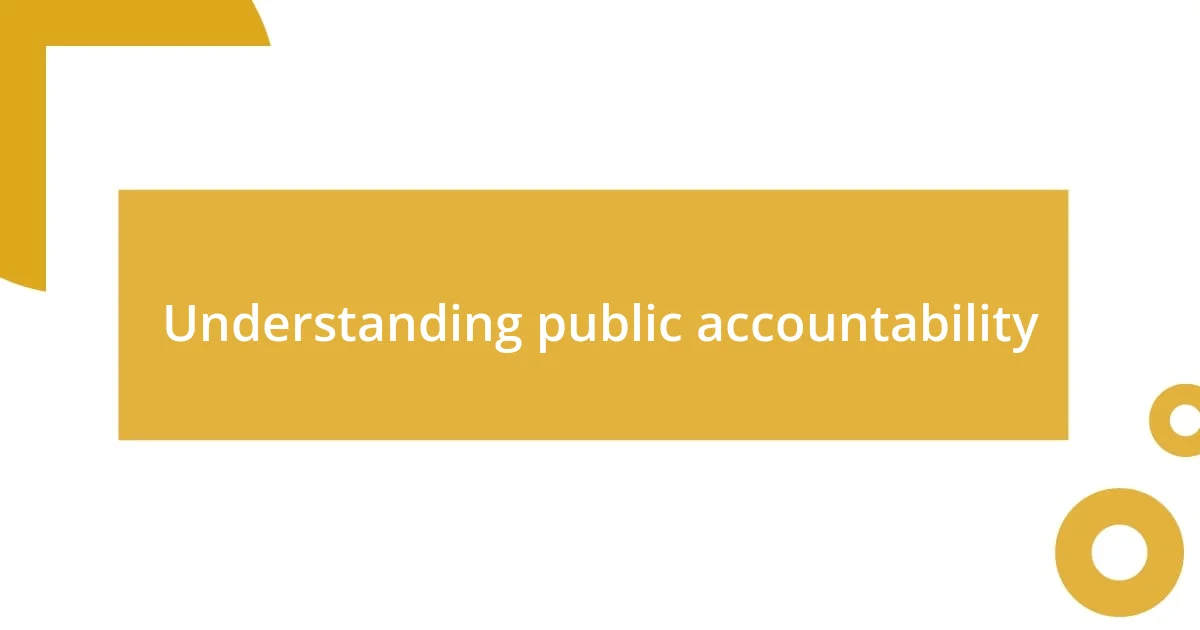
Understanding public accountability
Public accountability is fundamentally about ensuring that those in positions of power are answerable to the public they serve. I recall a time during a town hall meeting when a local official was questioned about budget allocations. It was incredibly enlightening to see how the community’s engagement influenced their decisions. Have you ever wondered how much impact our voices truly have in such settings?
Understanding public accountability also means recognizing the delicate balance between transparency and privacy. I often reflect on instances where too much openness can compromise sensitive information. It’s a fine line to tread, isn’t it? Such considerations remind me that accountability isn’t just about public scrutiny; it’s also about responsible governance that respects individual rights.
At its core, public accountability fosters trust between the government and its citizens. I’ve witnessed firsthand how communities flourish when leaders are held to high standards and are willing to address their constituents’ concerns. Have you felt that sense of belonging and security when knowing your leaders are truly accountable? That connection is what makes our civic engagement meaningful.
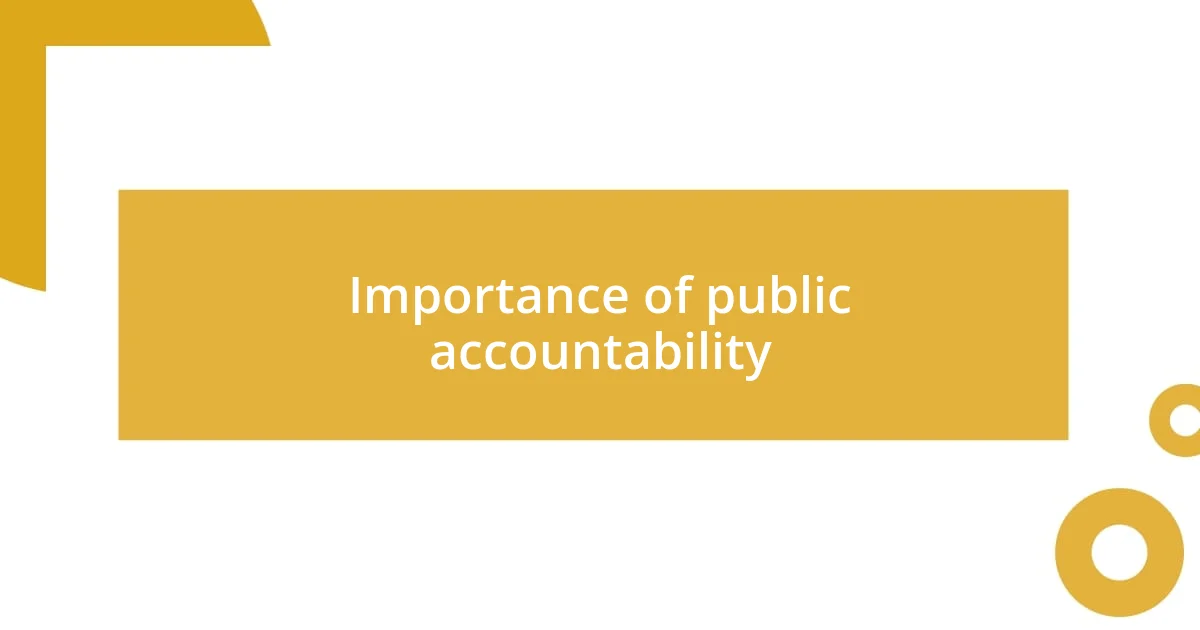
Importance of public accountability
Public accountability is crucial for cultivating a sense of trust within communities. Reflecting on my experiences with local officials, I’ve seen how accountability can make or break public perception. One time, during a community forum, I noticed how a transparent dialogue about local expenditures led to a newfound confidence in our leaders. Isn’t it comforting to know that when we hold our leaders accountable, they feel encouraged to perform better?
Moreover, public accountability serves as a deterrent against misuse of power. I remember a situation where a local project was mismanaged. The backlash from the public was swift and decisive. Witnessing that response reinforced my belief that when citizens hold their leaders to account, it not only corrects wrongs but also fosters a culture of better governance. Who knew that our collective voices could wield such incredible power?
Lastly, it’s important to recognize how public accountability can ignite civic engagement. In my neighborhood, we’ve seen a dramatic increase in citizen participation in local government meetings since leaders began to share more about their decision-making processes. This shared responsibility empowers everyone and confirms that our involvement is not just welcomed but essential. Have you ever felt energized after participating in such discussions? I certainly have, and it makes me believe that together, we can truly shape our communities.
| Aspect | Importance |
|---|---|
| Trust Building | Encourages transparency and community confidence. |
| Deterrence of Corruption | Acts as a barrier against misuse of power. |
| Civic Engagement | Promotes active participation and empowerment of citizens. |
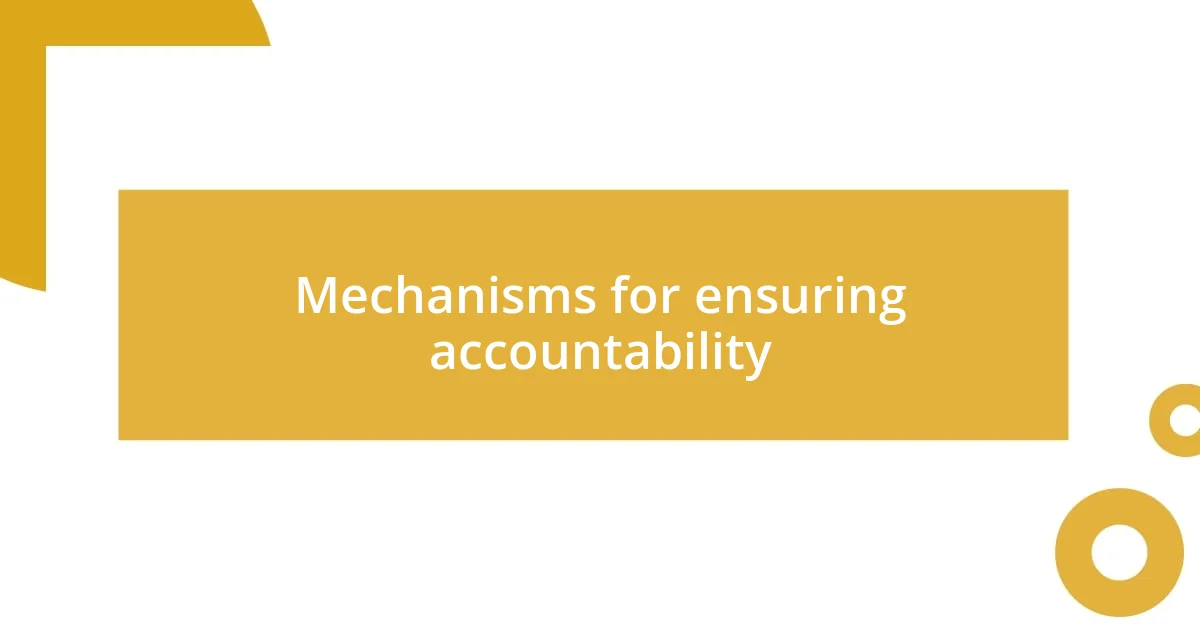
Mechanisms for ensuring accountability
Ensuring accountability in public governance requires a variety of mechanisms that empower citizens and promote transparency. From my own experiences, I’ve seen how independent oversight bodies can effectively monitor government actions. When my local community established an auditing committee, I couldn’t help but feel a surge of hope. It’s like having a watchdog that ensures our representatives are genuinely working for us.
Here are some key mechanisms that foster accountability:
- Transparency Reports: Regularly published documents that outline government actions and expenditures help keep the public informed.
- Public Consultations: Inviting community input on key decisions reinforces the idea that leaders are listening. I recall attending a budget discussion where citizen suggestions were actively incorporated, making it feel collaborative.
- Whistleblower Protections: Safeguarding individuals who expose wrongdoing encourages a culture of honesty. When I learned about a whistleblower in an educational setting, it reinforced my belief that bravery in speaking up is vital for effective accountability.
- Regular Audits: Independent assessments of government finances allow for checks and balances, ensuring funds are used appropriately. Seeing these audits lead to corrective actions has been both satisfying and enlightening.
Each of these mechanisms plays a crucial role in creating a system where accountability thrives, allowing citizens like us to feel more connected and engaged in our governance.
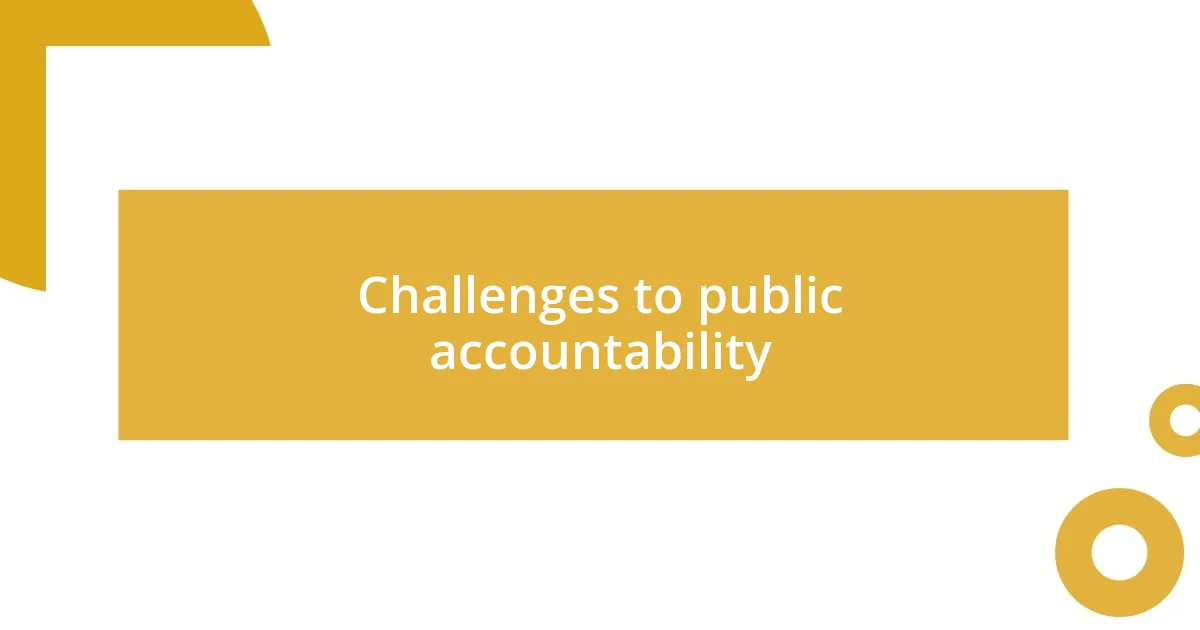
Challenges to public accountability
One significant challenge to public accountability is the pervasive lack of transparency. I recall a year when local officials failed to share crucial data regarding a development project. As a concerned citizen, I felt frustrated and powerless. How can we hold our leaders accountable if we aren’t given a clear view of their actions? This lack of information can create a breeding ground for mistrust and suspicion, weakening the very foundation of accountability.
Another hurdle is the often-inequitable access to channels for voicing concerns. In my experience, not everyone has the same opportunity to engage with policymakers. Some community members are more vocal or possess better resources, leaving voices unheard that could provide valuable perspectives. Is it fair that public accountability disproportionately favors certain demographics? I believe it’s vital for all citizens to feel empowered to participate, regardless of their background.
Lastly, there’s the challenge of political will. Even with robust mechanisms for accountability in place, if there’s no genuine commitment from leaders to embrace these practices, progress stalls. I once attended a meeting where officials made impressive promises about enhancing accountability, yet many years later, little changed. It left me wondering—how can we ensure that commitments translate into action? Ultimately, accountability must be at the heart of governance, not just a checkbox on a list of priorities.
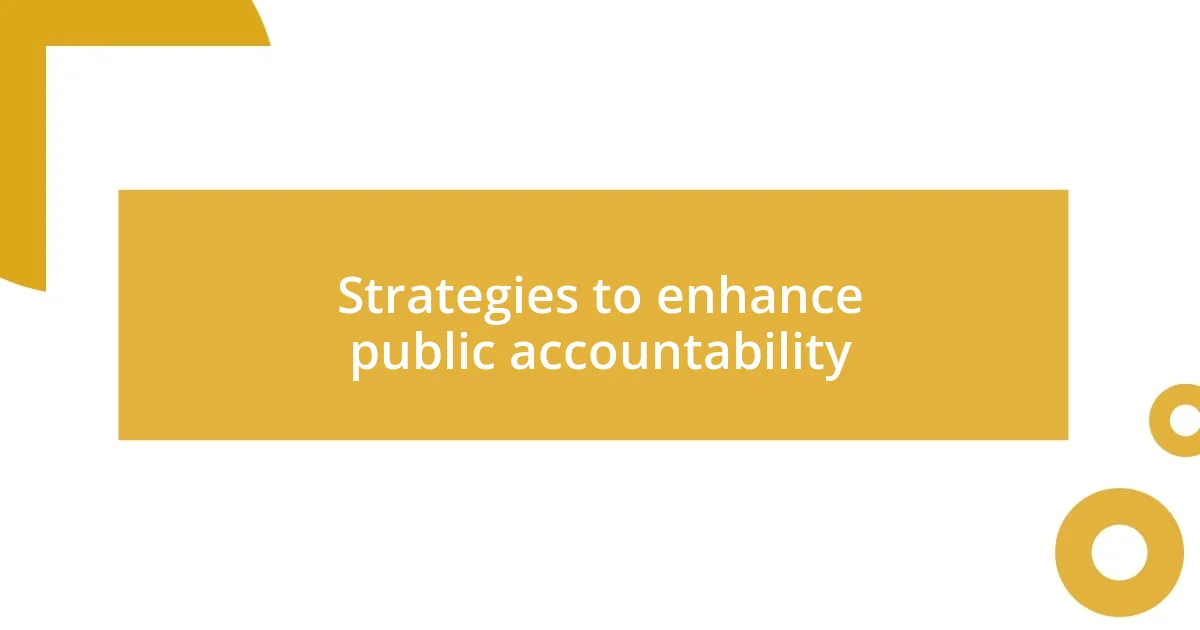
Strategies to enhance public accountability
One effective strategy to enhance public accountability is implementing citizen-led monitoring initiatives. I remember attending a community forum where residents banded together to track local spending on infrastructure projects. It was empowering to see everyday citizens taking the reins, not just watching from the sidelines. When people are actively involved in oversight, it fosters a sense of ownership and responsibility, driving home the message that we all have a role in ensuring our leaders remain accountable.
Another powerful approach is leveraging technology for greater transparency. In my town, a user-friendly online platform was introduced to share government budgets and project updates. The first time I accessed it, I felt a rush of excitement as I could easily grasp where funds were allocated. Accessible tech solutions can demystify complex information and encourage more citizens to engage with their governmental processes. Isn’t it incredible how the right tools can bridge the gap between authority and the people?
Lastly, enhancing education around public governance can make a considerable difference. I’ve had conversations with friends who didn’t fully understand how local government functions, which highlights a critical gap. Providing workshops and resources to increase civic literacy empowers individuals to ask the right questions and demand accountability. How can we expect accountability if the public lacks the knowledge to navigate the system? Having informed citizens is fundamental to creating a robust accountability culture, one where everyone feels equipped to contribute and hold leaders responsible for their actions.
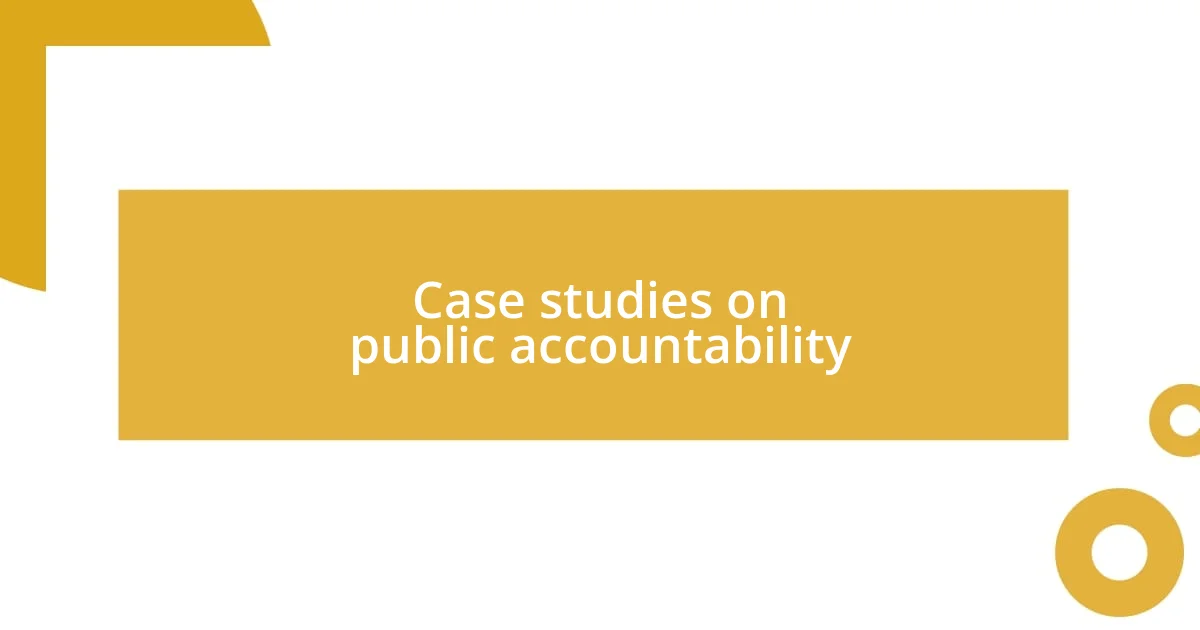
Case studies on public accountability
When reflecting on case studies of public accountability, the Flint Water Crisis comes to mind. The initial failure of officials to act on the warning signs of lead contamination left residents feeling betrayed and vulnerable. I remember hearing about families affected, including one friend whose children faced serious health issues. How can we reconcile the trust placed in leaders when they turn a blind eye to dire warnings? This incident not only highlighted the importance of timely action but also showcased the devastating impact of negligence on a community.
Another example is the response to the COVID-19 pandemic in various countries. Some nations effectively communicated their plans and strategies to the public, while others faltered under pressure. In my observation, transparent reporting of case numbers and vaccination rates fostered trust. I was inspired by how open lines of communication allowed citizens to feel involved and informed. Isn’t it interesting how a crisis can either strengthen or fracture public accountability, depending largely on how leaders choose to respond?
Lastly, I think about the role of community watchdog organizations. My experience volunteering with one of these groups revealed how powerful grassroots movements can be in holding officials accountable. Attending public meetings and gathering citizen feedback was eye-opening; witnessing residents advocate for their needs underscored the notion that accountability isn’t just top-down. Isn’t it refreshing to feel the energy of a community rallying together to demand better? By amplifying their voices, individuals can create real change, illustrating that public accountability thrives when citizens are engaged and vocal.










